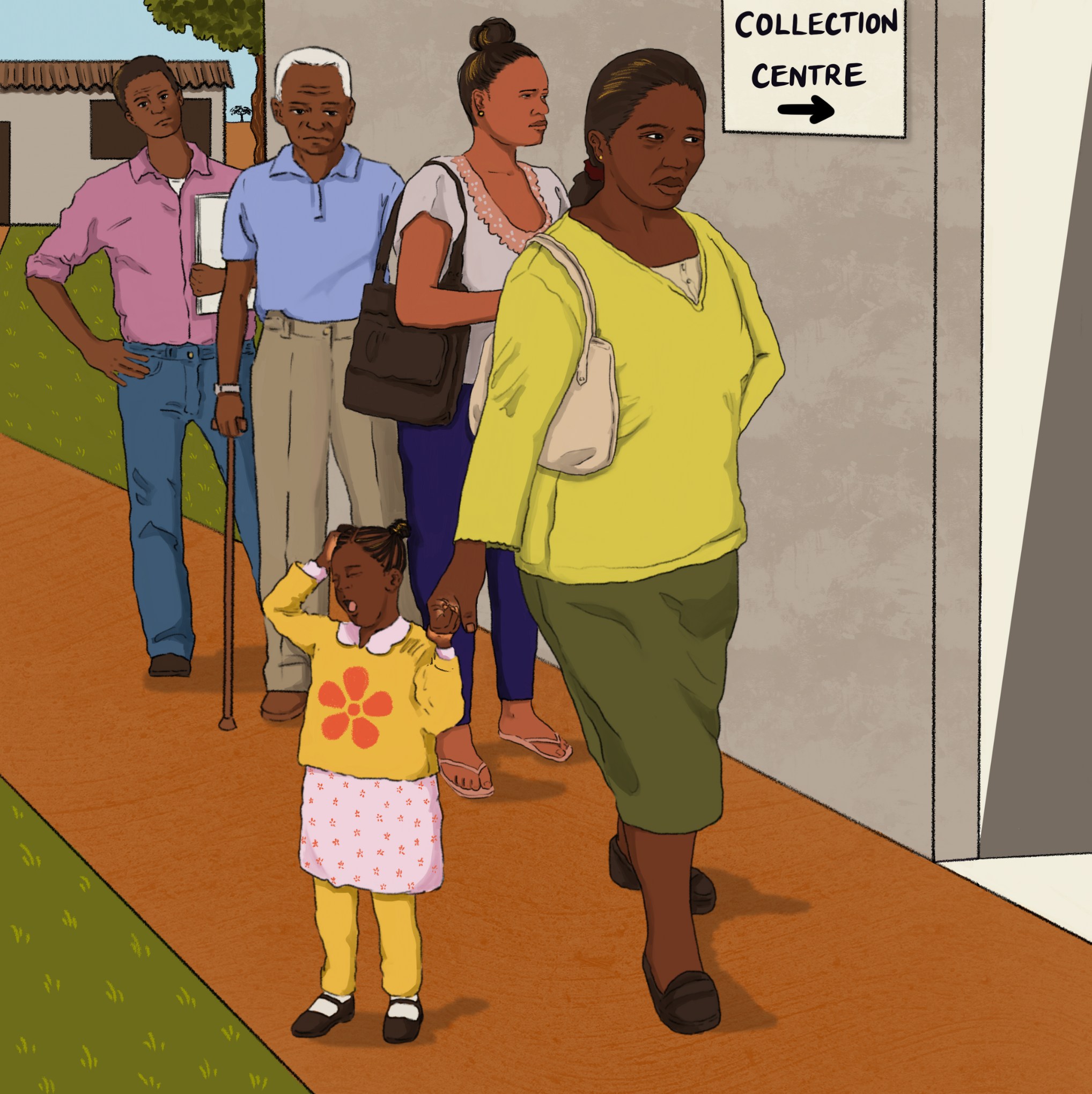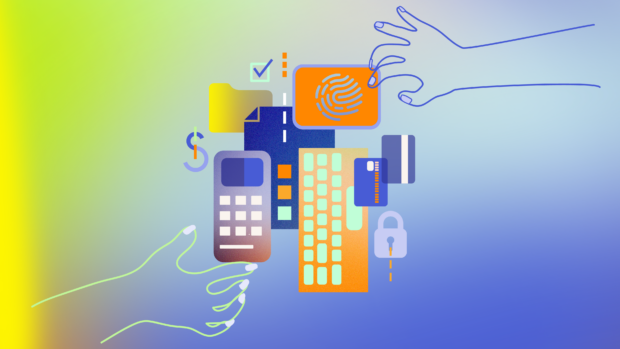At 9:15am, Yusuf left the Uganda Driving Licensing System centre with his new driving permit. The process took him exactly twenty minutes. He couldn’t believe it.
“I left home at 6:00am, got into a taxi, and arrived here at 8:50am. I genuinely thought that I would spend the day here. But I am leaving with my permit. No middlemen, no long lines, and no one asking for a bribe,” Yusuf explains with excitement. “All I needed was my National Identity Card, proof of payment, and my old permit.”
Yusuf, a 42-year-old former truck driver, hopes to get a job as a private chauffeur – an opportunity that could be transformative. We spoke with Yusuf about his experiences with getting a driving permit, and what the new system – powered by data exchange – means for him. Yusuf’s story is part of a wider series of articles highlighting people’s lived experiences of digital transformation, which we hope, will help to more meaningfully understand how data and digital technology are impacting people and communities across Africa.
Obtaining a driving permit once meant a long and burdensome process for Ugandans like Yusuf.
For decades, many people in Uganda faced a painful process to obtain a driving permit. This was due to a system that was predominantly paper based and riddled with inefficiencies, which resulted in long delays.
“I remember the first time I applied for a driving permit in 2001. I had just started driving. The process took me almost three months getting my papers in order. We had to fill in a three-page pamphlet, pay at a bank, submit, and wait for a week for the next step. If your papers had issues, you had to repeat the process. At all times, you had to sit the whole day under the sun. Sometimes you had to come back the next day,” Yusuf recalls.
With such a long and tedious processes, many opted to obtain driving permits through illegal means, such as paying bribes to authorities to fast track the process. Yusuf, recalling his experience, mentioned how these illegal shortcuts made the permit process unnecessarily expensive, with payments sometimes going as high as $200 depending on how fast it was needed. Some, he mentioned, resorted to getting loans to afford this amount.
As a result, public uproar was common. Many took their frustrations to newspapers and online publications.
But now, the new process has streamlined and simplified getting a driving permit.
In 2020, the Uganda Driver Licensing System (UDLS) was introduced by the Ministry of Works and Transport, integrating the National Identity system with access to essential services, powered by effective data exchange systems.
Today, with the right documents, Ugandans only have to engage with one government department to apply, pay, and receive their valid license in less than 30 minutes.
“The new system is incredibly efficient,” said Yusuf. “I had all my documents ready, and the entire process took me less than 20 minutes. From biometric data capture to receiving my new license, everything was seamless and professional. It’s a huge improvement from the old days.”
Yet, at the same time, questions around data consent and usage cannot be overlooked.
While he appreciated the benefits of the new system, Yusuf also voiced some valid concerns.
During the issuing process, applicants are required to provide their biometric data, namely their photo, signature, and fingerprints. Yusuf expressed mixed feelings about this step. “It’s impressive how quickly they process everything now, but I do wonder about the security of my personal data.”
Yusuf was not given any information or required to consent to the usage of his data during the permit process, leaving him apprehensive about potential risks. As he shared, “What if it gets into the wrong hands?”
With governments increasingly relying on biometric data for identification and verification purposes, there is growing need for clear policies on how data is collected, stored, and used.
Despite advancements in the driving permit process, barriers of affordability and reliability remain.
For some, the cost of registration can still prove prohibitively expensive. While Yusuf commended the reduced corruption of the new system, he expressed mix feelings around the cost.
As he explained, “The cost is quite reasonable now, especially compared to the old days when bribes were a norm. We now pay UGX 135,000 (USD$36) for one year, UGX 230,000 (USD $61) for three years and UGX 330,000 (USD $88) for five years. However, for some, even this amount can be a stretch. I’m lucky I could afford it without any issues.”
Unfortunately, this is not the only cost associated with obtaining a driving permit.
Individuals must also have a valid National Identity Card, the cost of which is approximately UGX 330,000 ($90) to process. This amount is astonishingly high, considering that about half of working Ugandan adults earn less than UGX 150,000 (about USD$ 40) per month.
In addition, unreliable systems can result in long delays. Along with price concerns, Ugandans have expressed frustrations about how painful the process is to replace a lost ID, with some reporting that it took them more than six months to replace.
As Yusuf noted, “System downtimes are very common in Uganda. Maybe I was lucky today but, in many offices, sometimes, the system goes down, and you have to wait for a day or even weeks just because of a technical glitch.”
Frequent technical glitches and internet disruptions not only slow down the issuance of National Identity cards and driving permits, but also undermine the reliability of the system. And for people like Yusuf, who rely on the system’s efficiency to get a timely driving permit to secure a job private chauffeuring, these interruptions can mean lost opportunities.

When it comes to digital transformation, benefits and challenges often coexist. Yusuf’s story demonstrates a step in the right direction.
Through embracing digital transformation and robust data exchange practices, the new system has made it possible for people like Yusuf to quickly obtain a driving permit, free from some of the inefficiencies of the past.
While the streamlined and simplified process has reduced corruption and enhanced the user experience, it could also serve to improve public trust in the government and its institutions. Such trust is crucial, as it fosters a more engaged citizenry, ultimately strengthening the social contract between the government and its people.
But to do so, there are still significant challenges that must be overcome. With the cumbersome process of obtaining a National Identity Card, technical downtimes, and untransparent communication about data usage, the system risks exclusion, inaccessibility, and privacy concerns. To surmount these obstacles, concerted action is needed. Fist, clear and open dialogue about how personal data is used, stored, and protected is needed to help build public trust. And, equally as important, continued investment in digital infrastructure and affordable access is critical to help Uganda build on its success and further enhance public services for its people.







